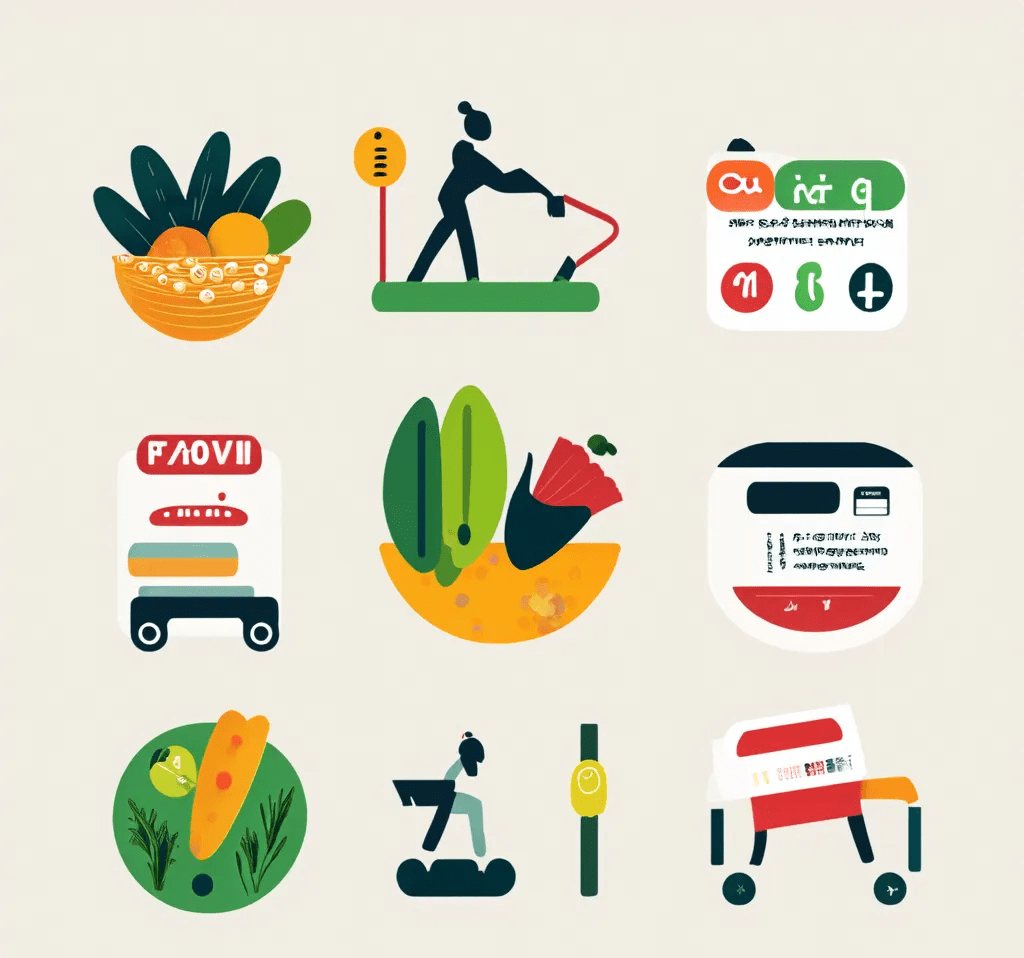What to pay attention to after getting diabetes?

Dietary attention
Due to the different actual conditions of different diabetic patients, we recommend that patients visit doctors regularly and obtain personalized dietary guidance from doctors/nutritionists promptly. In general, a diversified dietary plan with a high intake of cereal foods, low salt, low sugar, and low fat intake is required.
Dietary Recommendations
- Quantified staple foods and intake on demand: Staple foods include rice, flour, various grains, etc., which need to be taken on demand under the guidance of doctors and nutritionists according to actual conditions.
Whole grains and beans should account for 1/3 of the staple food intake: Whole grains refer to grains that have not been finely processed or treated: Beans are starch-rich bean foods, including red beans, mung beans, and other beans other than soybeans.
- Fresh vegetables should be served at every meal, and the cooking method should be appropriate: Vegetables of different types and colors have different nutritional characteristics. Green leafy vegetables, yellow vegetables, and cruciferous vegetables are rich in a variety of antioxidant vitamins, which are beneficial to lowering the glycemic index of sugars. In addition, excessive intake of cooking oil should be avoided when cooking vegetables.
- Daily vegetable intake is about 500g, with dark vegetables accounting for more than 1/2: The daily vegetable intake of diabetic patients should not be lower than that of healthy adults, preferably more than 500g.
- Choose low-glycemic index fruits between meals: Diabetic patients should choose fruits with a low glycemic index, and should pay attention to reasonable arrangement of eating time and eat in moderation each time.
- Eat fish and livestock meat in moderation, reduce fat intake, and eat no more than one egg per day.
- 300ml of liquid milk or an equivalent amount of dairy products per day: If you choose yogurt, it is advisable to choose plain yogurt without sucrose and honey.
- Pay attention to the intake of soybeans and their products, and choose nuts such as pistachios and almonds as snacks in moderation, with a daily intake of about 30-50g.
- Drink enough boiled water, drink light tea or coffee in moderation, and do not drink sugary drinks. Meals should be eaten at regular times and in fixed quantities: chew slowly and thoroughly, and develop the habit of eating vegetables first and staple food last.
Dietary Taboos
- Alcohol is not recommended. In addition, since alcohol can induce hypoglycemia, be careful not to drink on an empty stomach.
- Cook with less oil and salt, and limit condiments or foods with high salt content such as soy sauce, chicken essence, monosodium glutamate, and pickles.
- Eat less processed meat products such as smoked, baked, and pickled meat.
Other Issues Needing Attention
|Pay attention to key groups of people with diabetes
- People over 45 years old; - Obese people, especially those with central obesity; - People with a family history of diabetes;
- Patients with hyperlipidemia; - People with hypertension and/or cardiovascular and cerebrovascular diseases. - Women with diabetes must plan their pregnancy and be monitored throughout the process.
|People not suitable for exercise therapy
- Type 1 diabetes patients with severe insulin deficiency; - Brittle diabetes patients with extremely unstable blood sugar;
- Patients with systolic blood pressure greater than 180mmHg;
- Hyperglycemia, greater than 14mmol/patient; - Patients with severe heart disease; - Patients with insufficient cerebral blood supply; - Patients with complications of kidney disease; -Diabetic patients with acute infection.
|Pay attention to complications
Hypoglycemia: A severe complication that may occur during the treatment of diabetes: Common in the elderly, patients with impaired renal function, and patients with severe microvascular and macrovascular complications.
Those with severe hypoglycemia and repeated hypoglycemia should go to the hospital for medical treatment in time. Possible causes and countermeasures:
- Insulin or insulin secretagogues: Start with a low dose: Increase the dose gradually: Adjust the dose carefully; - Not eating on time: or eating too little: Patients should eat regularly and quantitatively: If the amount of food eaten is reduced, the drug dose should be reduced accordingly: Be prepared in advance when there is a possibility of delay in a meal.
Increased exercise: Increase additional carbohydrate intake before exercise.